The Second Mother
(Que horas ela volta?)
Anna Muylaert / Brazil / 2015 / 112 min
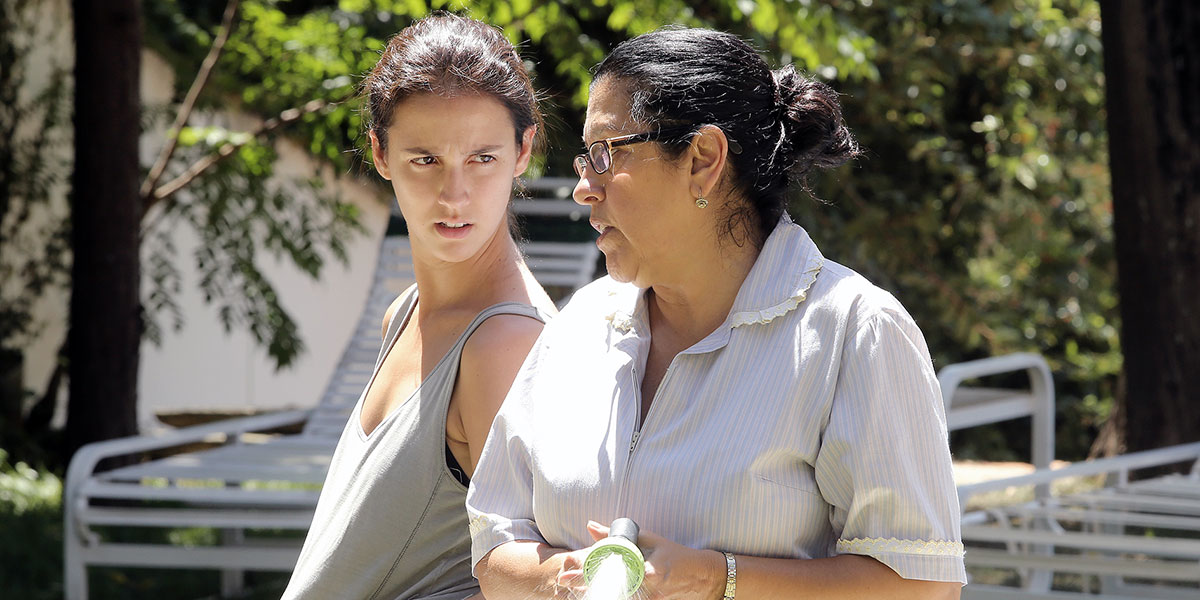
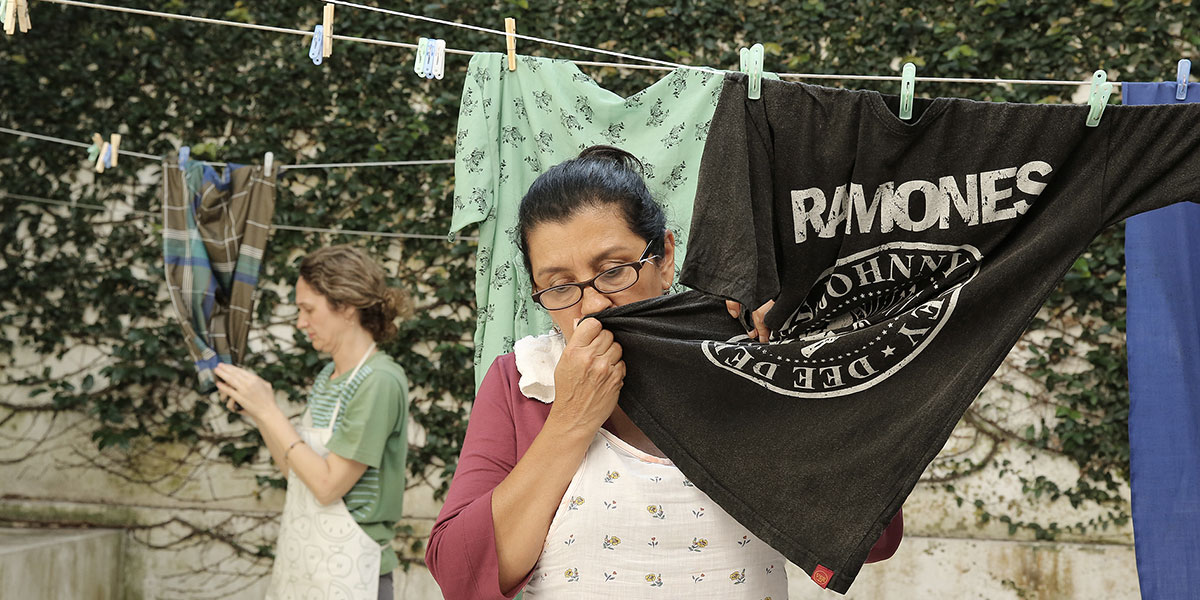
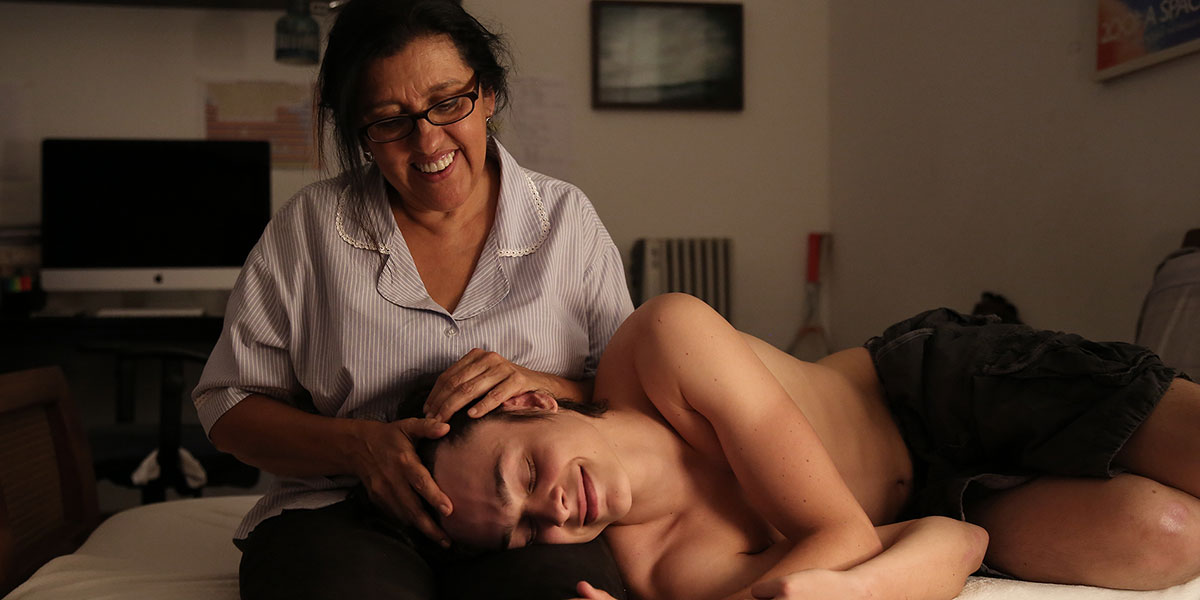
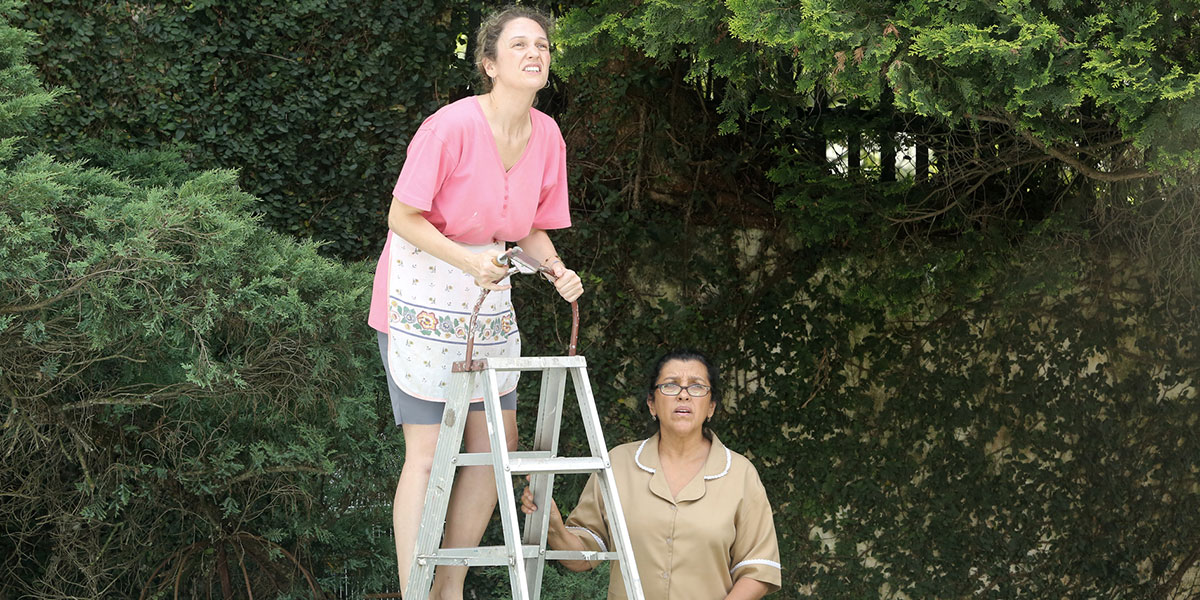
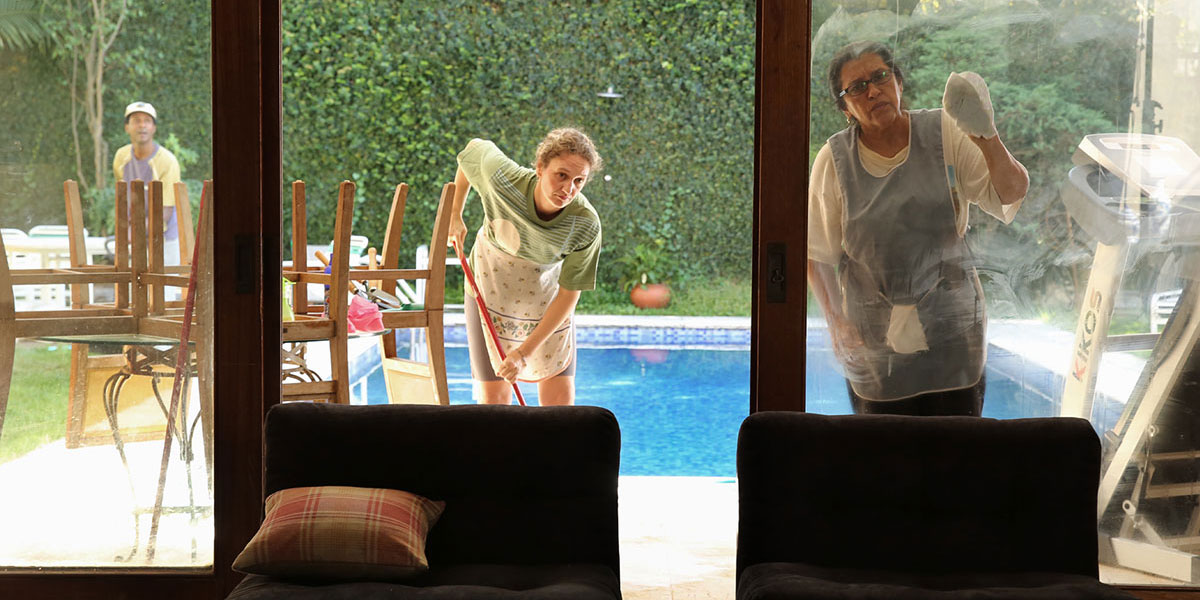
Brazil’s Official Entry to the Academy Awards®
Best Foreign Language FilmBerlin International Film Festival
Best Director, Audience Award, CICAE AwardSundance Film Festival
Special Jury Prize for ActingLjubljana International Film Festival
Best FeatureWomen Film Critics Circle
Best Foreign FilmRiverRun International Film Festival
Best ScreenplaySao Paulo Association of Art Critics Awards
Best Film, Best ActressNational Board of Review
One of the Top Five Foreign Language Films 2015International Press Academy Satellite Awards
Nominee - Best International Motion Picture
Spanish Film Club
Related Films
 Zoila. My Other Mother(Zoila. Mi otra madre)Gabriela PenaZoila’s home-movie aesthetic paints an intimate portrait of the titular Mapuche nanny whose absence from the frame poses important questions about the ...
Zoila. My Other Mother(Zoila. Mi otra madre)Gabriela PenaZoila’s home-movie aesthetic paints an intimate portrait of the titular Mapuche nanny whose absence from the frame poses important questions about the ... Guie’dani’s Navel(El Ombligo de Guie'dani (XQUIPI' GUIE'DANI))Xavi SalaIn a star-making performance, Sótera Cruz brings razor-sharp intensity to her portrayal of Guie’dani, a Zapotec girl determined to fight for her ...
Guie’dani’s Navel(El Ombligo de Guie'dani (XQUIPI' GUIE'DANI))Xavi SalaIn a star-making performance, Sótera Cruz brings razor-sharp intensity to her portrayal of Guie’dani, a Zapotec girl determined to fight for her ... A World for Julius(Un mundo para Julius)Rossana Díaz CostaBased on one of Peru’s most important literary works, A World for Julius by Alfredo Bryce Echenique, this film follows the life of an upper-class ...
A World for Julius(Un mundo para Julius)Rossana Díaz CostaBased on one of Peru’s most important literary works, A World for Julius by Alfredo Bryce Echenique, this film follows the life of an upper-class ... Southern District(Zona Sur)Juan Carlos ValdiviaLa Paz’s Zona Sur neighborhood is Bolivia’s most exclusive enclave and has housed the country’s affluent elite for generations. In an ...
Southern District(Zona Sur)Juan Carlos ValdiviaLa Paz’s Zona Sur neighborhood is Bolivia’s most exclusive enclave and has housed the country’s affluent elite for generations. In an ... CarajitaSilvina Schnicer, Ulises PorraFeaturing striking cinematography and outstanding performances, Carajita (which means annoying child) explores the tenuous relationship that exists ...
CarajitaSilvina Schnicer, Ulises PorraFeaturing striking cinematography and outstanding performances, Carajita (which means annoying child) explores the tenuous relationship that exists ...Synopsis
In Portuguese with English subtitles
With Regina Casé, Michel Joelsals, Camila Márdila, Karine Teles, and Lourenço Mutarelli
BRAZIL’S OFFICIAL ENTRY TO THE ACADEMY AWARDS®
An excitingly fresh take on some classic themes and ideas, The Second Mother dissects with both impeccable precision and humor such matters as class differences and family. The film centers around Val, a hard-working live-in housekeeper in modern-day São Paulo.
Stunningly performed by Regina Casé, Val is perfectly content to take care of every one of her wealthy employers’ needs, from cooking and cleaning to being a surrogate mother to their teenage son, whom she has raised since he was a toddler. But when Val’s estranged daughter Jessica suddenly shows up, the unspoken but intrinsic class barriers that exist within the home are thrown into disarray. Jessica is smart, confident, and ambitious, and refuses to accept the upstairs/downstairs dynamic, testing relationships and loyalties and forcing everyone to reconsider what family really means.
Filmmaker may be available for a Q&A via Skype. Speaker fee: $300. Inquire at FILMCLUB@PRAGDA.COM
Related Subjects
About the Director
Muylaert was a film reviewer at Estadão and Isto É. She was on the creation team of the children’s TV series Mundo da Lua and the hugely successful Castelo Ratimbum, at TV Cultura. She also collaborated on the scripts of the features O Ano em que Meus Pais saíram de Férias and Xingu by Cao Hamburger, Praia do Futuro by Karim Ainouz, and the TV series Filhos do Carnaval, Alice and Preamar, at HBO. In 2013 she directed the teleplay Alem de tudo me deixou mudo o violão and was the director the TV series As Canalhas.
Press
“A deeply moving examination of the essence of family.” – Claudia Puig, USA TODAY
“This densely-layered yet fast-paced drama…dissects with both chilling precision and humor such matters as class differences, real mothers vs. caretakers, and whether privilege and one’s own station are things that can be questioned or changed.” – Boyd Van Joeij, THE HOLLYWOOD REPORTER
“One of the most accomplished, sure-handed films of the [2015 Sundance Film] festival.” – Sydney Levin, INDIEWIRE
“Regina Casé shines in this warm character study. Brazilian filmmaker Anna Muylaert spins a culturally specific tale with universal appeal.” – Geoff Berkshire, VARIETY
“Casé’s ace comic timing mines plenty of humor from... Muylaert’s tightly written and structured screenplay.” – Geoff Berkshire, VARIETY
“Easily one of the best films I’ve seen this year. It’s deeply satisfyingly to see a story so deceptively simple unfold with such thoughtful and thought provoking resonance.” – Sasha Stone, AWARDS DAILY
“A smart yet subtle portrait of the incalculable riches of a good relationship between parents and children.” – Monica Castillo, PASTE
“Regina Case delivers a stunning performance…in Anne Muylaert’s riveting drama.” – Boyd Van Joeij, THE HOLLYWOOD REPORTER
“It smartly uses its little moments of humiliation to open our eyes to a world of delicate, but deep, injustice. ” – Bilge Ebiri, VULTURE
“A magnificent drama about the charged relationship between household help and the household.” – Dana Stevens, SLATE